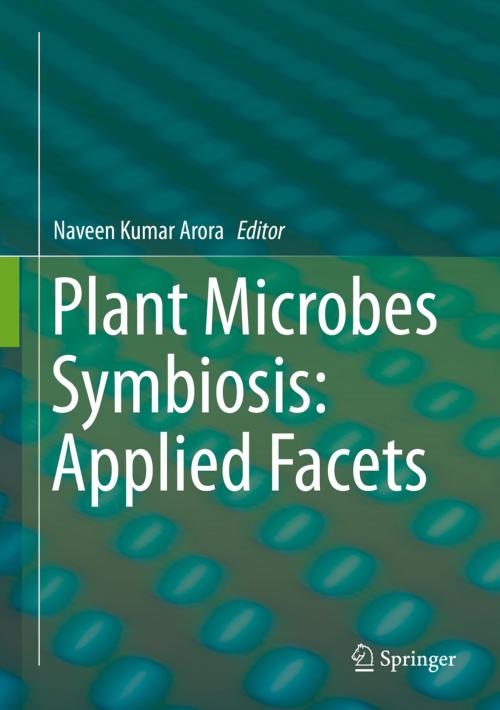Plant Microbes Symbiosis: Applied Facets
Nonfiction, Science & Nature, Technology, Agriculture & Animal Husbandry, Science, Biological Sciences, Environmental Science| Author: | ISBN: | 9788132220688 | |
| Publisher: | Springer India | Publication: | October 30, 2014 |
| Imprint: | Springer | Language: | English |
| Author: | |
| ISBN: | 9788132220688 |
| Publisher: | Springer India |
| Publication: | October 30, 2014 |
| Imprint: | Springer |
| Language: | English |
Plants form mutualistic association with various microorganisms, particularly in the rhizosphere region. The association benefits both the partners in a number of ways. A single plant can support the growth of diverse microbes and in reciprocation these microbes help the plant in several ways. A great deal of knowledge is now available on the mechanisms of action of plant growth promoting microbes in forming association with their partner plant and benefitting it. With ever increasing population and to achieve food security it has become utmost necessary to utilize these friendly microbes to enhance the crop yield and quality in an ecofriendly and sustainable manner. We already know about the huge negative impact of chemicals used in agriculture on the humans and the ecosystems as whole. ‘Plant Microbes Symbiosis – Applied Facets’ provides a comprehensive knowledge on practical, functional and purposeful utility of plant-microbe interactions. The book reviews the utilization of beneficial microbes for crop yield enhancement and protection against diseases caused by phytopathogens and nutrient deficiencies. The tome also reviews the utility of plant growth promoting microbes in helping the plants to deal with abiotic stresses imposed by climate change and anthropogenic activities. The book showcases how plant-microbe interactions are or can be utilized for reclamation of stressed soils and degradation of pollutants in a most effective and environment friendly manner. It also ascertains the reasons for the below par performance of the microbial based inoculants. The utilization of biotechnological tools for development of next generation bioformulations to combat the new challenges and overcome past hurdles has been discussed. This wonderful association between plants and microbes if used properly will not only enhance the crop yields and reclaim barren lands but also make our planet a better place to live on for all of its habitants.
Plants form mutualistic association with various microorganisms, particularly in the rhizosphere region. The association benefits both the partners in a number of ways. A single plant can support the growth of diverse microbes and in reciprocation these microbes help the plant in several ways. A great deal of knowledge is now available on the mechanisms of action of plant growth promoting microbes in forming association with their partner plant and benefitting it. With ever increasing population and to achieve food security it has become utmost necessary to utilize these friendly microbes to enhance the crop yield and quality in an ecofriendly and sustainable manner. We already know about the huge negative impact of chemicals used in agriculture on the humans and the ecosystems as whole. ‘Plant Microbes Symbiosis – Applied Facets’ provides a comprehensive knowledge on practical, functional and purposeful utility of plant-microbe interactions. The book reviews the utilization of beneficial microbes for crop yield enhancement and protection against diseases caused by phytopathogens and nutrient deficiencies. The tome also reviews the utility of plant growth promoting microbes in helping the plants to deal with abiotic stresses imposed by climate change and anthropogenic activities. The book showcases how plant-microbe interactions are or can be utilized for reclamation of stressed soils and degradation of pollutants in a most effective and environment friendly manner. It also ascertains the reasons for the below par performance of the microbial based inoculants. The utilization of biotechnological tools for development of next generation bioformulations to combat the new challenges and overcome past hurdles has been discussed. This wonderful association between plants and microbes if used properly will not only enhance the crop yields and reclaim barren lands but also make our planet a better place to live on for all of its habitants.















